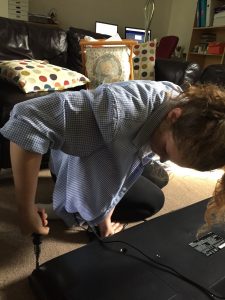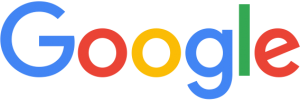As we found in the last post the Internet is the barer of all knowledge (well… most knowledge); which means that there is a lot on there that we can learn.
The Internet is full of sites that contain useful information for us to discover and learn; whether it is a forced search into the depth of Wikipedia for your history project or ‘Google-ing’ your symptoms to become your own doctor. All this knowledge can be accumulated and can provide people educations on several in depth topics. Saying this, it is where we get the information to write the papers that can be handed into teachers and lecturers within the education we pay for.
These papers that we hand in for our lecturers are within their specialist fields of that industry or subject matter. Meaning that the information we return them to prove our competency could even be written by themselves, and was published online by similar researchers in the field. With authors of all description, fiction and non-fiction, publishing their books and research online is allowing the internet to aid people within their educations.

 This has allowed us to create the commonly used phrase to ‘Google it’, which everyone in western society will understand as ‘look it up on the internet’ (and more commonly in Britain implying ‘stop bothering me with your questions’!). The knowledge that comes from the Internet allows you to be able to learn anything and this doesn’t just limit to facts, you can learn to DO! If you need to learn how to fix the power button on your TV before your Dad comes home from work because you and your Mum broke it while trying to watch another episode of Greys Anatomy then you can find video instructions on YouTube… Yeah that happened. Or if you’re a student and need some cooking tips, you can check out Sorted Food. Or if you need to know how to paint on your makeup perfectly like Kim Kardashian then you can learn here.
This has allowed us to create the commonly used phrase to ‘Google it’, which everyone in western society will understand as ‘look it up on the internet’ (and more commonly in Britain implying ‘stop bothering me with your questions’!). The knowledge that comes from the Internet allows you to be able to learn anything and this doesn’t just limit to facts, you can learn to DO! If you need to learn how to fix the power button on your TV before your Dad comes home from work because you and your Mum broke it while trying to watch another episode of Greys Anatomy then you can find video instructions on YouTube… Yeah that happened. Or if you’re a student and need some cooking tips, you can check out Sorted Food. Or if you need to know how to paint on your makeup perfectly like Kim Kardashian then you can learn here.
With the internet, you can give yourself a mini education or can actually get a full education with Open University. This is where you can get a university degree via online courses and graduate with a full honours. Or, you can extend your education by taking a Masters online, for example through the University of Edinburgh. There are also online spaces such as MOOC (Massive Open Online Courses) which provide affordable and flexible online courses to teach ‘skills, persue lifelong interests and deliver quality educational experiences’.
This access is amazing, giving people knowledge is giving people power and the more they know, the more they can achieve. The best bit, is that anyone with access to the internet, has access to this information, giving people more of a level playing field than ever before!
